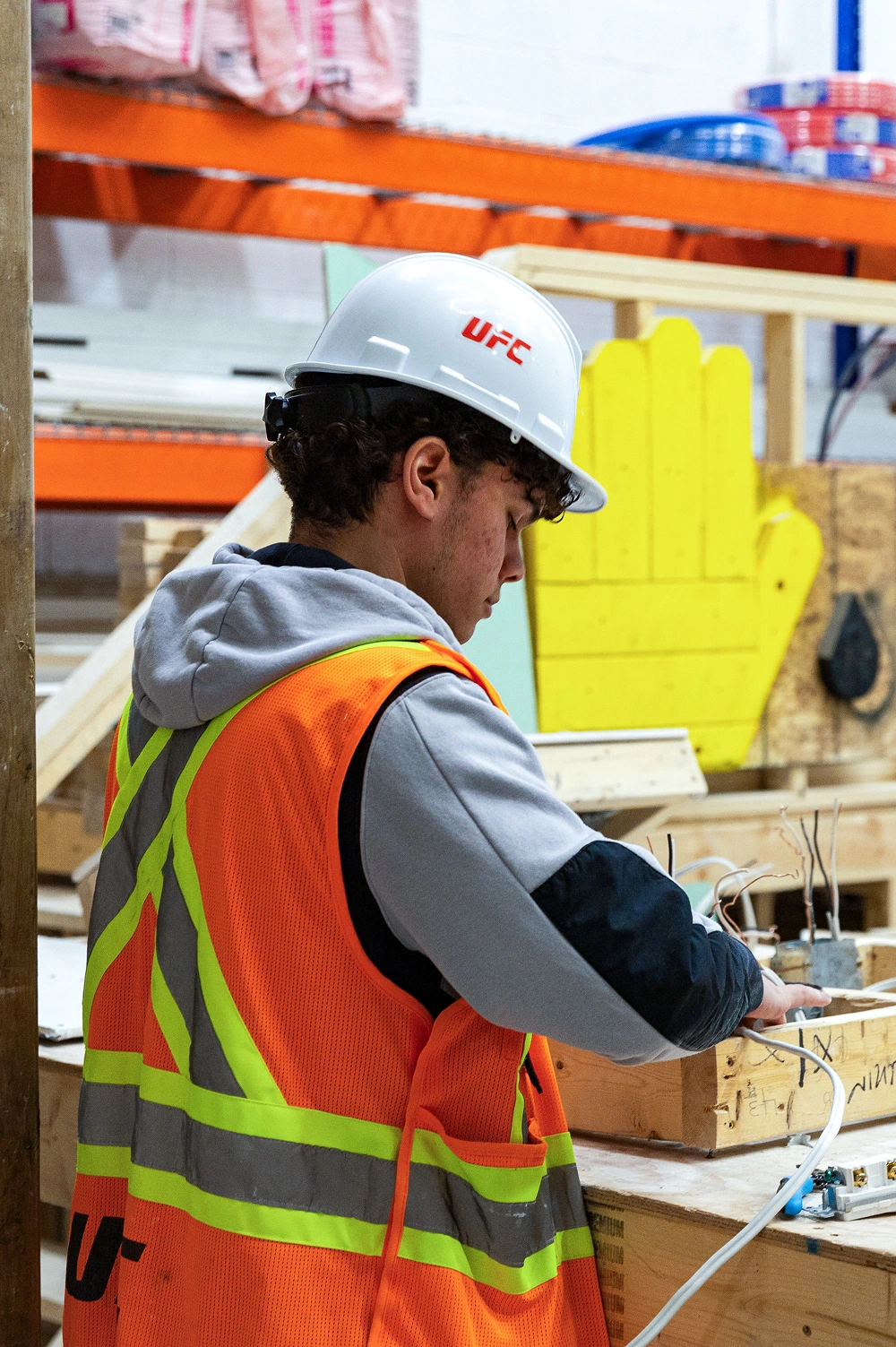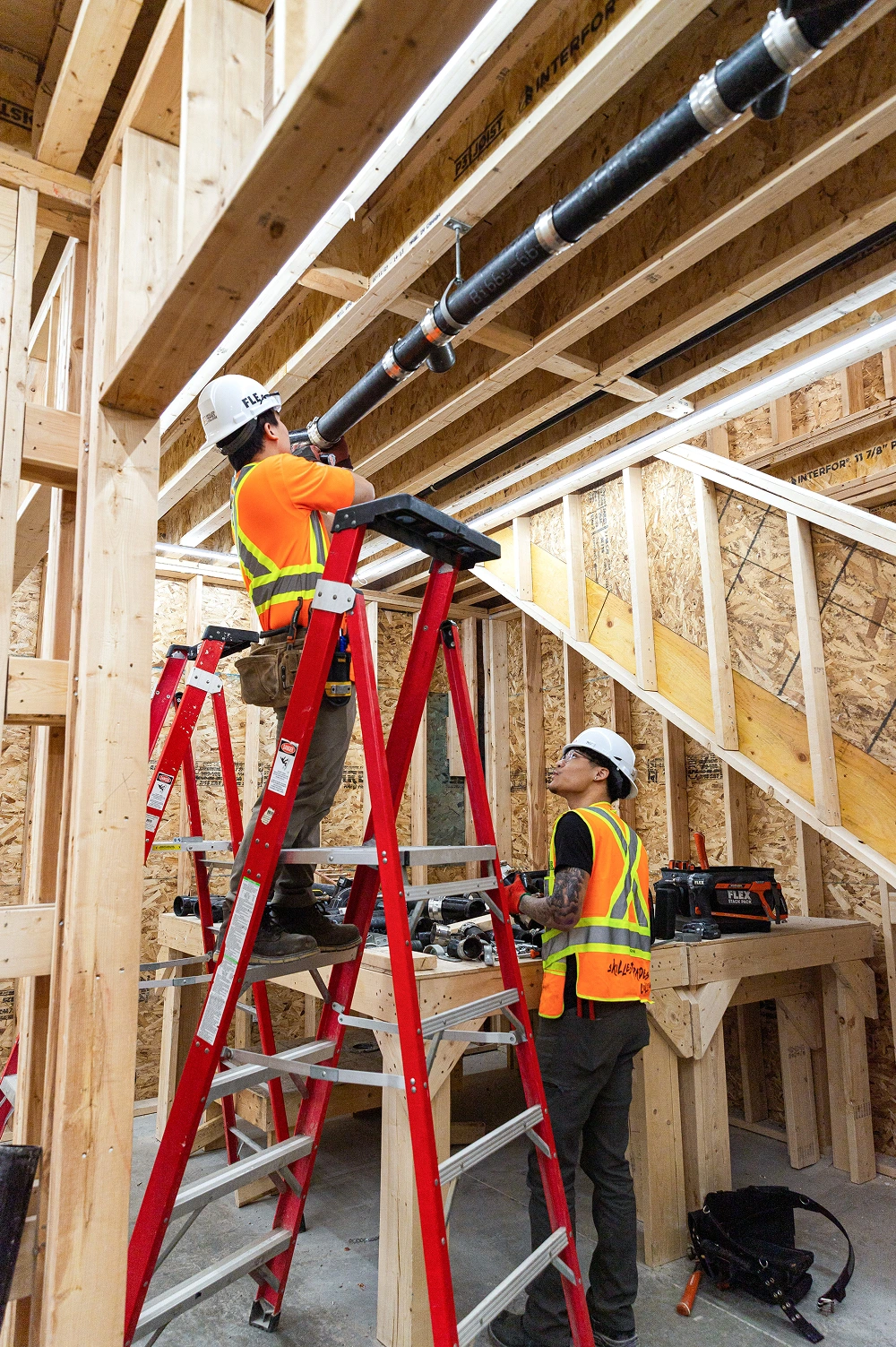Why Women are Choosing Careers in Skilled Trades

Published On
17-01-2024
.png)
A cable technician is a skilled tradesperson who installs, repairs, and tests cable systems for internet, security, and telecom devices and networks.
If you're drawn to the intricacies of technology and enjoy meticulous hands-on work, then becoming a cabling technician might be the perfect career path for you. Another perk of the job is the earning potential—get the skills to pay the bills and you can expect to be raking in an annual salary of more than $80,000—not too bad for a career in the trades!
But what qualifications do you need to become a network cable technician in Canada? That’s what we’re here to answer—let’s get learning!
Before you channel your inner MacGyver and conquer tangled network wires, let's check the must-haves for aspiring cabling technicians in Canada:
Trade certification is voluntary in the following provinces and territories:
Keep in mind that even in non-regulatory territories, some employers might prefer certified workers. Also, employers may prefer a cable installation technician with a valid driver’s license.
Good dexterity, stamina, and the ability to work in a variety of spaces are also common requirements that employers look for, especially because the job will require you to climb ladders and carry heavy equipment.
%2520(1)_1.png)
The good news is that becoming a cable installer or technician doesn’t require a university degree—but you do need to have the right skills and training.
Understanding electronics, electricity, and telecommunications are some of the core skills required to succeed in this field, and the best way to learn is through hands-on training. Apprenticeship programs for cabling technicians provide exactly that; you’ll learn and hone your skills under the watchful eye of a network cabling specialist.
The requirements to become an apprentice network cabling technician can vary, but in most provinces and territories you must:
With all that being said, cabling technician apprenticeships are competitive and completing a pre-apprenticeship can help you secure one.
A pre-apprenticeship training program will give you hands-on practice with network cabling, low-voltage systems, and even basic electrical principles.
This knowledge will impress future employers when they review your resume while also giving you a head start. Plus, learning the ropes in a smaller, more focused setting can ease the transition into a demanding full-fledged apprenticeship.
Many pre-apprenticeship programs also offer courses that can count toward your total apprenticeship hours. This could save you time and help you enter the industry as a professional much sooner—and hit the ground running at that!
All things considered, completing a pre-apprenticeship program for cable technicians isn’t mandatory, but it is a great way to decorate your resume. Employers are more likely to choose would-be apprentices who are already equipped with some knowledge, skills, and training because it saves them time and money.
It’s also a great route for people shifting careers because it provides a bridge between their existing skills and the demands of the cabling technician field. So, if you want to transition into the trades, enrolling in a pre-apprenticeship course is a great way to get your foot in the door!
Read more: 8 Reasons Why Pre-Apprenticeship Programs are Important
%2520(1)%2520(1)%2520(1).png)
As with other skilled trades, the apprenticeship system for cable technicians in Canada is regulated by each province or territory. You can expect some minor differences depending on where you live. Notheneless, becoming an apprentice usually involves:
Apprenticeship programs for cabling installation technicians may vary in length, but it’s usually a combination of 4,000 hours of on-the-job training and 600 hours of in-school instruction. During this time you’ll become familiar with:
Once your apprenticeship is completed, you will have the option to take the Certificate of Qualification exam in your province or territory. In non-regulatory provinces and territories, it isn’t compulsory and therefore doesn’t need to be renewed.
The road to a successful cable technician career starts with a high school diploma and ends with an apprenticeship—but a pre-apprenticeship program in between can put you on the right track!
Skilled Trades College of Canada offers pre-apprenticeship training for network cabling technicians, electricians, plumbers, and other trade specializations. Our courses get students job-ready in just 12 weeks; they’re built around an 80:20 ratio of hands-on learning to classroom learning designed to better develop your skills.
Enrol at Skilled Trades College today to start your cabling technician career!
9,281+
LIVES CHANGED

12,481+
WIRES PULLED

85,382+
2X4'S CUT

9,756+
PIPES LAYED

9,281+
LIVES CHANGED

12,481+
WIRES PULLED

85,382+
2X4'S CUT

9,756+
PIPES LAYED

9,281+
LIVES CHANGED

12,481+
WIRES PULLED

85,382+
2X4'S CUT

9,756+
PIPES LAYED
